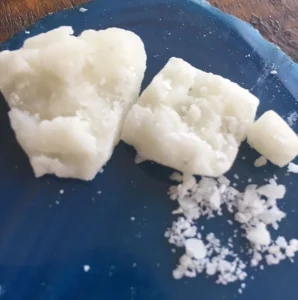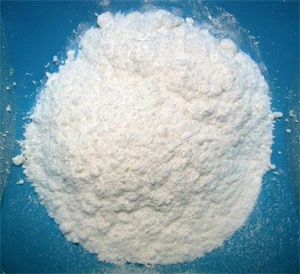Cocaine is a powerful stimulant that affects the central nervous system, leading to heightened alertness, intense euphoria, and increased energy. Its effects are short-lived, and repeated use can quickly lead to dependency, physical harm, and long-term health complications. Whether used recreationally or chronically, knowing how long cocaine stays in your system is essential for your health, understanding legal implications, and knowing when to seek treatment.
The duration that cocaine remains detectable in your system depends on various factors such as the form of cocaine used (powder or crack cocaine), frequency of use, and your body’s metabolic rate. Understanding these factors is crucial for anyone concerned about cocaine’s impact on their health or legal status.
At DetoxLA, we specialize in helping individuals break free from cocaine addiction. As a leading addiction treatment and recovery center, we offer comprehensive support and resources to help individuals recover safely and successfully. Some of the treatments and programs we offer include detoxification for drugs and alcohol, 24/7 medical care and support under the residential treatment program, and therapeutic modalities.
Factors That Influence How Long Cocaine Stays in Your System
Several factors affect how long cocaine stays detectable in your system. Understanding these factors helps explain how your body processes the drug and why detection times may vary.
1. Body Composition
- Metabolism and Body Fat: Individuals with faster metabolisms typically process cocaine more quickly, while those with higher body fat percentages may store the drug in fat cells longer, leading to extended detection times.
- Age: As people age, their metabolism slows down, which could result in cocaine staying in their system longer.
2. Frequency of Use
- Occasional vs. Chronic Use: Occasional users may eliminate cocaine within a few days, while chronic users accumulate cocaine in their system, extending detection windows. For frequent users, cocaine and its metabolites may take much longer to be processed and excreted.
3. Form of Cocaine Used
- Powder Cocaine vs. Crack Cocaine: The form of cocaine you use plays a role in how long it stays detectable in your system. Habitual users of crack cocaine can sometimes linger longer compared to powder cocaine due to its potency and rapid effects.
4. Other Factors
- Hydration and Diet: Proper hydration can help flush cocaine out of your system more quickly, whereas dehydration can delay the process.
- Overall Health: Individuals with liver or kidney issues may have difficulty processing cocaine, which can extend detection times. Additionally, using cocaine alongside other substances can further slow the body’s metabolism.
By considering these factors, you can gain a better understanding of how long cocaine may stay in your system. If you are concerned about detection or looking to begin recovery, DetoxLA located in Tarzana, CA, can help guide you or your loved one through the detox process safely.
How Long Does Cocaine Stay Detectable in Your System?
The amount of time cocaine remains detectable depends on the type of drug test used, your frequency of use, and how your body metabolizes the drug. Let’s break down how long cocaine can be detected in different testing methods:
Urine Testing
Urine tests are the most common method for detecting cocaine use. For occasional users, cocaine is typically detectable in urine for 2 to 4 days after use. Chronic or heavy users may have cocaine detectable for up to 10 days or more. Crack cocaine, due to its potency, follows a similar detection timeline but may linger slightly longer for habitual users.
Blood Testing
Cocaine is rapidly absorbed into the bloodstream and can be detected within 12 to 48 hours of use. Blood tests are especially useful for identifying recent use, as cocaine metabolizes quickly in the bloodstream, breaking down into benzoylecgonine, which remains detectable for several days.
Saliva Testing
Saliva tests provide a snapshot of recent cocaine use, often detecting the drug within minutes of use. Cocaine can remain detectable in saliva for up to 1 to 2 days, depending on the dosage and frequency of use. This method is often used for roadside tests and workplace drug screenings.
Hair Follicle Testing
Hair follicle testing offers the longest detection window. After use, cocaine metabolites become part of the hair strands, where they remain detectable for up to 90 days or longer. Hair testing is especially useful for identifying long-term patterns of cocaine use, though it does not detect immediate or short-term usage.
If you are concerned about upcoming drug tests or your cocaine use, it’s important to get the right help. DetoxLA offers medically supervised detox programs designed to support individuals at every stage of recovery.

How Long Does Crack Cocaine Stay in Your System?
Crack cocaine, a more potent and addictive form of cocaine, can be detected for varying lengths of time, depending on the test used and frequency of use. Due to its high addiction potential and potency, crack cocaine often follows a similar but slightly longer detection timeline compared to powder cocaine.
Breakdown of Detection Times
- Urine: For occasional users, crack cocaine is detectable for 2 to 4 days, while for chronic or heavy users, it may be detected for up to 10 days or more.
- Blood: Crack cocaine remains detectable in blood tests for up to 48 hours.
- Saliva: Crack cocaine can be detected in saliva for 1 to 2 days after use.
- Hair: As with powder cocaine, crack cocaine remains detectable in hair follicles for up to 90 days or longer.
Why Crack Cocaine May Stay Longer
Crack cocaine’s increased potency often leads to more frequent use, which can cause it to build up in your system, making it detectable for longer periods. Chronic crack cocaine users may have extended detection windows due to the body’s inability to efficiently process and eliminate the drug.
Concerned about how long crack cocaine stays in your system? Consider reaching out to the team at DetoxLA for guidance and addiction treatment options.
Signs of Cocaine Use
Recognizing the signs of cocaine use can be crucial for early intervention and treatment. Cocaine affects both the body and mind, leading to a range of physical, behavioral, and psychological symptoms that vary depending on the frequency and amount of use.
Physical and Behavioral Signs
- Dilated pupils
- Restlessness and hyperactivity
- Nosebleeds and nasal damage (for those who snort cocaine)
- Erratic behavior or mood swings
- Increased heart rate and blood pressure
Long-Term Effects
- Cardiovascular issues: Prolonged cocaine use can lead to heart attacks, arrhythmias, and high blood pressure.
- Respiratory damage: Smoking crack cocaine can damage the lungs, causing chronic cough and respiratory failure.
- Neurological damage: Chronic cocaine use can impair memory, cognitive function, and emotional regulation.
- Social and relationship problems: Cocaine addiction often strains relationships and leads to financial or legal troubles.
How to Identify Chronic Cocaine Use
- Significant weight loss
- Paranoia and hallucinations
- Intense cravings and withdrawal symptoms
- Neglect of personal responsibilities
If you or a loved one are showing these signs, it may be time to consider seeking help from a professional addiction treatment and recovery center like DetoxLA. Call (818) 616-7341 or send our team a message today.
Detoxification and Addiction Treatment Options at DetoxLA
Overcoming cocaine addiction begins with detoxification, the first and essential step toward recovery. At DetoxLA, we provide medically supervised detox in a safe and supportive environment.
Overview of Detox Process
Cocaine detox can be physically and emotionally challenging. Withdrawal symptoms can include fatigue, depression, intense cravings, and mood swings. At DetoxLA, we ensure that withdrawal is managed safely and with as little discomfort as possible. Our team of medical professionals closely monitors your progress to prevent relapse and provide support during this critical phase.
Addiction Treatment Programs
Once detox is complete, DetoxLA offers a range of addiction treatment programs structured to individual needs:
- Inpatient Residential Treatment: For severe addiction, our residential program provides 24/7 care and a structured environment to focus entirely on recovery.
- Outpatient Treatment: This option allows flexibility for individuals who require treatment but need to maintain responsibilities outside of rehab.
- Dual Diagnosis Treatment: We specialize in treating both addiction and underlying mental health conditions, ensuring a comprehensive approach to recovery.
Personalized Recovery Plans
Every individual’s journey to recovery is unique, which is why we create personalized recovery plans unique to needs and circumstances. Whether you’re battling cocaine use or crack cocaine use, our treatment team will develop a recovery plan that combines therapy, counseling, and aftercare support to help you achieve lasting sobriety.
At DetoxLA, we are committed to helping you regain control of your life. Our addiction treatment and recovery center is dedicated to supporting you at every step of the way.
Contact DetoxLA Today!
Understanding how long cocaine stays in your system is crucial for making informed decisions about your health. If you or a loved one are struggling with cocaine use or addiction, it’s never too late to seek help. At DetoxLA, we specialize in providing the comprehensive care necessary to break free from addiction.
Contact DetoxLA today to begin your path to recovery and take the first step toward a healthier, drug-free future.

